Thirteen Ways of Looking at Electronic Literature, or, A Print Essai on Tone in Electronic Literature, 1.0
Mario Aquilina, Ivan Callus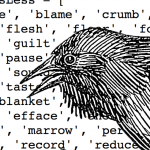
This essay has been reprinted from the journal CounterText (2.2) by permission of Edinburgh University Press.
Riposte to Jan Baetens, Photo Narratives and Digital Archives, or The Film Photo Novel Lost and Found
David S. Roh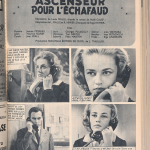
In response to Baetans's essay, David Roh sees an occasion for moving digital literary studies beyond the archive toward a a living repository of anarchistic, ongoing communitarian activity with a "resurgent cultural impact."
Why a Humanist Ethics of Datafication Can’t Survive a Posthuman World
Jennifer R. Whitson, Brian Schram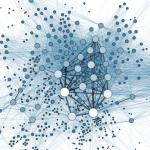
A post-humanist critique of Rockwell and Berendt's all too Humanist essay, in the vein of Donna Haraway’s “Keeping with the Trouble: Making Kin in the Cthulucene” (2016) and Patricia MacCormack’s “Posthuman Ethics” (2012).
Creating New Constraints: Toward a Theory of Writing as Digital Translation
Jan Baetens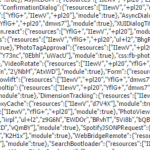
In response to Mencia, Pold, and Portela, Belgian poet and scholar Jan Baetans suggests that we might view the field of trans-medial literature as an offshoot of translation studies (and not the reverse). In any case, whether we approach e-lit from a medial or linguistic standpoint, scholars do well to observe a "merger of translation and adaptation studies."
Photo Narratives and Digital Archives; or: The Film Photo Novel Lost and Found
Jan Baetens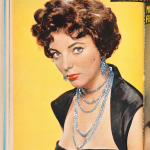
A first draft of this essay was presented at the 2017 ELO Conference at Porto, in a panel organized by the "Nar-Trans" group of the University of Granada.
Vibrant Wreckage: Salvation and New Materialism in Moby-Dick and Ambient Parking Lot
Dale Enggass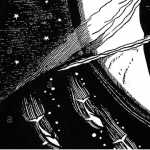
Instead of simply reviewing Vibrant Matter by Jane Bennett (Duke 2010), author Dale Enggass applies Bennett's "Political Ecology of Things" to longstanding (and not yet resolved) themes of salvation, materialism and transcendence in Melville's Moby-Dick and Pamela Lu's Ambient Parking Lot.
Decollage of an Iconic Image
Daniel Schulz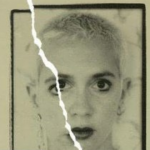
Even as the first biography of Kathy Acker appears, we have word of a newly assembled Acker archive in Cologne, under the curatorship of Daniel Schulz. The gist of which, could be to re-orient Acker's personal relationships to "the politics inherent in Acker's life."
Electronic Literature Translation: Translation as Process, Experience and Mediation
Søren Bro Pold, María Mencía, Manuel Portela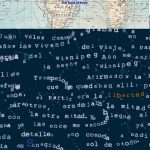
"[T]ranslation is merely a preliminary way of coming to terms with the foreignness of languages to each other." (Walter Benjamin, "The Task of the Translator" [1921])
Self-Aware Self-Censorship As Form
David Thomas Henry Wright
A dedicated, elaborated thought stream from an author who, like McElroy, has read and thought about the presence of censorship (as theme and experience) in novels by Ross Gibson, Shariar Mandinipour,J. .M. Coetzee, W. G. Sebald, Mark Z Danielewski, Italo Calvino, and Fernando Pessoa. Author David Thomas Henry Wright explores the (loss of) authority of the literary novel in a time of "networked glut" while at the same time seeking trans-national, trans-historical, photographic, multi-medial and inter-generational "alliances" that might redress contemporary censorship and "deeply shape (or erode) contemporary literature."
Author and Auto-censorship
Max Nestelieiev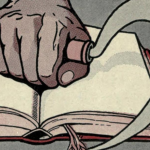
Max Nestelieiev responds to Joseph McElroy’s recent ebr essay, exploring how Soviet control enforced onto writers a self-censorship for which their work paid the price.
Of Myth and Madness: A Postmodern Fable
Ralph Clare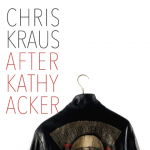
Ralph Clare reviews After Kathy Acker: A Literary Biography by Chris Kraus.
Beyond Ecological Crisis: Niklas Luhmann’s Theory of Social Systems
Hannes Bergthaller
Bergthaller's essay originally appeared in the collection, Ecological Thought in Germany. It is reprinted here, with permissions from Lexington Books, as part of an ebr gathering on Natural Media (December 2019).
What is Queer Game Studies?
Jason Lajoie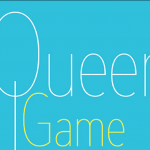
Addressing a lacuna in games studies, Jason Lajoie makes a case for why a queer games studies is needed, and he shows how these two areas of study are united in Bonnie Ruberg's and Adrienne Shaw's collection.
The Role of Imagination in Narrative Indie Games
Gordon Calleja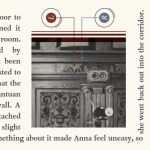
What binds literature, electronic literature and games is "the shaping and networking of the imagination." Drawing on the ideas of Damasio, Walton and Sartre, Gordon Calleja looks at the synthesizing role of the imagination in narrative indie games.
Postcinematic Writing
Adrian Miles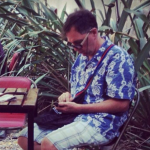
Adrian Miles (1960 — 2018) was an early theorist, practitioner and teacher of cinematic hypertext and networked, "writerly" video. In memory of his innovative research in these fields, ebr presents this short dialogue between Adrian and founding ebr publisher Mark Amerika. The text is republished from META/DATA: A Digital Poetics, by Mark Amerika, with permission from The MIT Press.